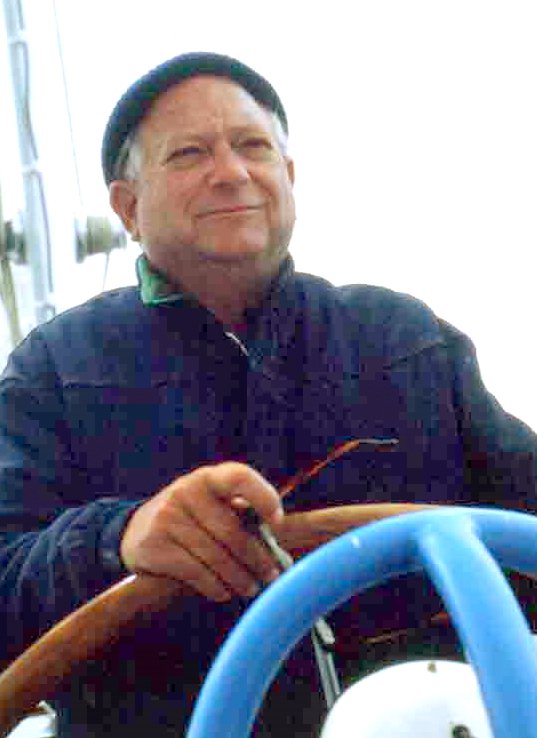“A detached attitude toward the problems of others is not illegal.”
Fonte: Demon Princes (1964-1981), The Killing Machine (1964), Chapter 3 (p. 180)
John Holbrook Vance foi um escritor de ficção científica e fantasia estadunidense, embora o próprio Vance tenha por diversas vezes se manifestado contra esses rótulos.[carece de fontes?] A maior parte do seu trabalho foi publicado sob o nome Jack Vance. Vance publicou 11 histórias de mistério como John Holbrook Vance e 3 como Ellery Queen. Utilizou ainda outros pseudônimos, tais como Alan Wade, Peter Held, John van See, Jay Kavanse.
Entre suas premiações estão o Hugo Award ; um Nebula Award em 1966, também por The Last Castle; o Jupiter Award em 1975; o World Fantasy Award em 1984 pelo conjunto da obra e em 1990 por Lyonesse: Madouc; um Edgar Award pelo melhor romance de mistério de 1961 por The Man in the Cage. Em 1992 ele foi Convidado de Honra da WorldCon em Orlando, Flórida; e em 1996 foi nomeado Grande Mestre da SFWA.
No geral, é tido em alta estima por críticos e colegas de profissão, alguns dos quais sugeriram que ele transcende rótulos de gênero e deveria ser considerado como um escritor importante pelos padrões da literatura convencional. Poul Anderson, por exemplo, certa vez chamou-o de "o maior escritor estadunidense vivo" na ficção científica .
Wikipedia

“A detached attitude toward the problems of others is not illegal.”
Fonte: Demon Princes (1964-1981), The Killing Machine (1964), Chapter 3 (p. 180)
“Destiny could not bring him this far only to deal him failure!”
Fonte: Demon Princes (1964-1981), The Star King (1964), Chapter 10 (p. 122)
“The tighter the discipline of an art form, the more subjective the criteria of taste.”
Fonte: Demon Princes (1964-1981), The Star King (1964), Chapter 7 (p. 79)
Fonte: Demon Princes (1964-1981), The Star King (1964), Chapter 3 (pp. 32-33)
“Revenge is not an ignoble motive, when it works to a productive end.”
Fonte: Demon Princes (1964-1981), The Star King (1964), Chapter 2 (p. 28)
“You will have useful work: the destruction of evil men. What work could be more useful?”
Fonte: Demon Princes (1964-1981), The Star King (1964), Chapter 2 (p. 27)
Bah!" muttered Hurtiancz. "By the same token, a sensible man need listen to but a single word in order to recognize the whole for egregious nonsense."
"Morreion", Ch. 8
Dying Earth (1950-1984), Rhialto the Marvellous (1984)
“Absolutely, and in all respects!” declared Cugel. “Recognizing, of course, that these fundamental verities vary from region to region, and even from person to person.”
Fonte: Dying Earth (1950-1984), Cugel's Saga (1983), Chapter 3, section 2, "Faucelme"
“For the sake of gain I’d compromise the art of my grandmother,” muttered Zamp under his breath.
Fonte: Showboat World (1975), Chapter 14 (p. 168)
“You’re sure you want to look into these cognates? You might see things you wouldn’t like.”
“So long as I know the truth, I don’t care whether I like it or not.”
Section 6 (p. 186)
Short fiction, Rumfuddle (1973)
Startling Stories (September 1948), p. 113
Short fiction, Sanatoris Short-Cut (1948)
“My wealth is my shelf of books!”
Fonte: Demon Princes (1964-1981), The Face (1979), Chapter 14 (p. 173)
“I neither confirm nor deny them; they are ridiculous.”
Fonte: Planet of Adventure (1968-1970), The Dirdir (1969), Chapter 20 (pp. 408-409)
“You make very narrow distinctions.”
Fonte: Night Lamp (1996), Chapter 13, section 7 (p. 230)
Contexto: “Of course! That is the nature of clear thinking.”
“There is no mystery about violence. It is the reflexive act of brutes, boors and moral defectives.”
Fonte: Night Lamp (1996), Chapter 3, section 1 (p. 37)
“The mourning of defeated peoples, while pathetic and tragic, is usually futile,” said Kelse.
Fonte: The Gray Prince (1975 [serialized 1974]), Chapter 16 (p. 159)
Fonte: The Gray Prince (1975 [serialized 1974]), Chapter 16 (p. 159)
“How I hate you. If hate were stone I could build a tower into the clouds.”
Fonte: The Gray Prince (1975 [serialized 1974]), Chapter 15 (p. 152)
“Often their grievances were real; often they complained from sheer petulance.”
Fonte: The Gray Prince (1975 [serialized 1974]) Prologue (p. 8)
“My brain, otherwise a sound instrument, has a serious defect—a hypertrophied lobe of curiosity.”
The Howling Bounders (p. 56)
Short fiction, The Many Worlds of Magnus Ridolph (1966)
The Unspeakable McInch (p. 39; all ellipses in the original)
Short fiction, The Many Worlds of Magnus Ridolph (1966)
“I’d rather be a live pessimist than a dead comedian.”
Fonte: Short fiction, Future Tense (1964), Sail 25 (p. 93)
Fonte: Short fiction, Future Tense (1964), Sail 25 (p. 84)
Fonte: Short fiction, Future Tense (1964), Dodkin’s Job (p. 15)